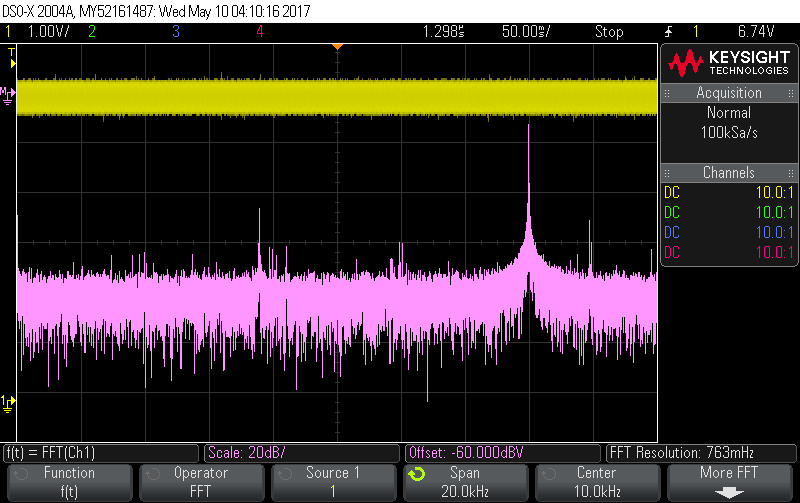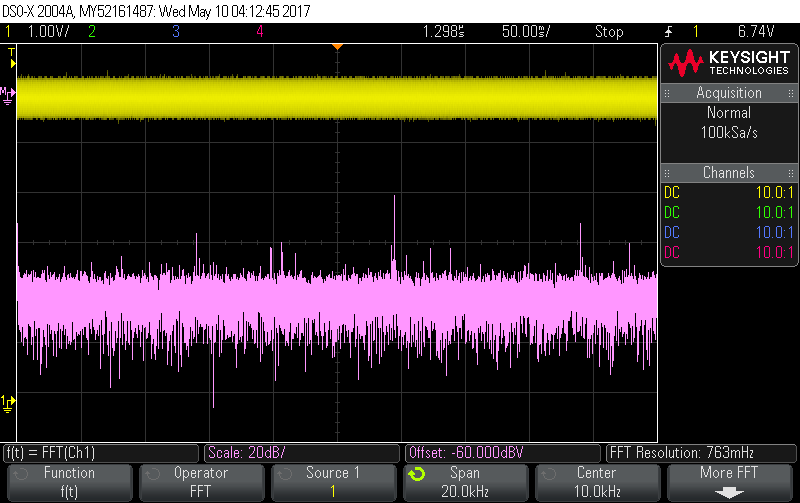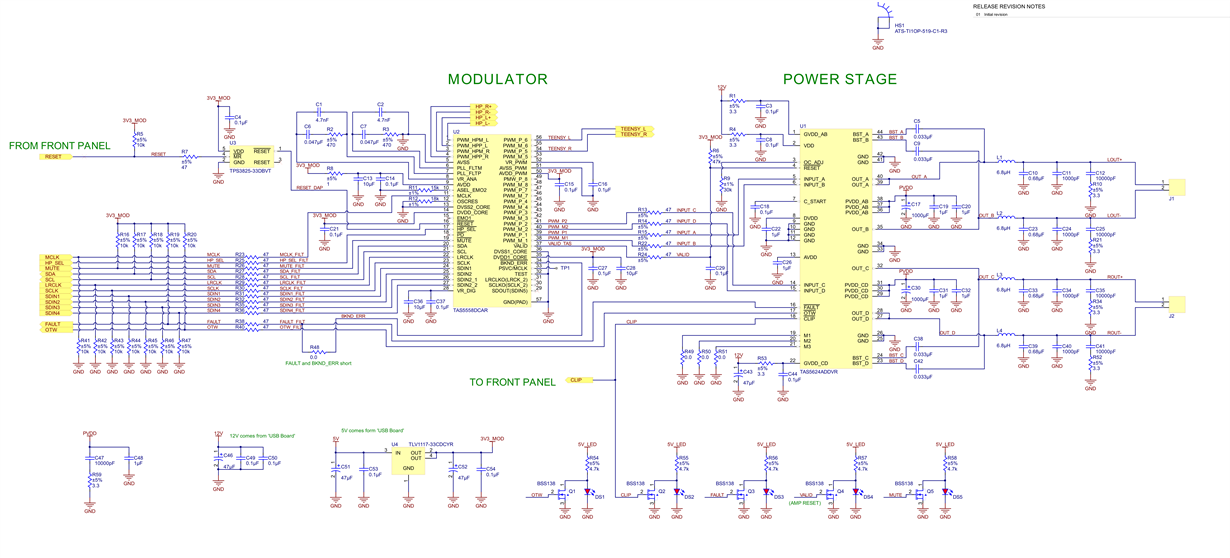Other Parts Discussed in Thread: TAS5624A, DIR9001, PCM1808, SN74LVC2G157
I have the TAS5558 connected to a TAS5624A power stage and am experiencing noise on the output of the TAS5558 when there is no input, even when the hard mute IO is pulled low too.
I have eliminated the power stage (the TAS5624A) as the suspect, as I can change the clock inputs to the TAS5558 from 44.1 to 48Khz sampling rate, and you can hear an audible change in pitch from the speaker on the output.
Does anyone know how to stop the TAS5558 producing this noise? It is clearly violating all it's SNR ratings in the datasheet! I feel it could be something to do with this oscillator trim register... I'm setting register 0x12 to 0x00 to get the chip to even work
Thanks in advance
Freddie




